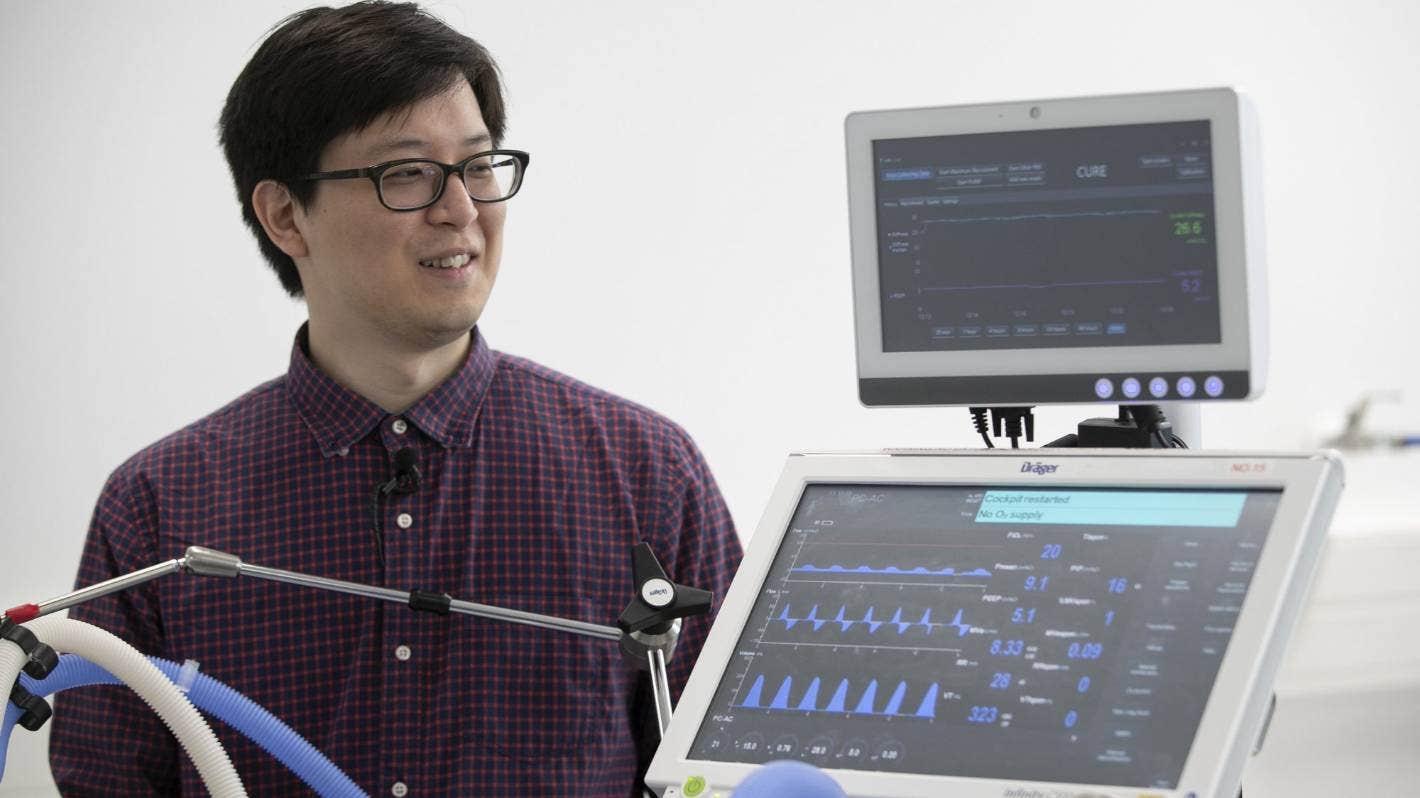
Premature babies could spend less time on potentially harmful ventilators thanks to Christchurch research
A new discovery about the lungs of premature babies – which could improve the way neonatal patients are treated – has been made as part of a Christchurch research collaboration.
The study at Christchurch Women’s Hospital’s Neonatal Unit (NICU) has found differences in the lungs of baby boys and girls, and could mean shorter time is spent on a potentially damaging ventilator for tiny patients.
The findings are the work of Kyeong Tae Kim, a mechanical engineering student at University of Canterbury (UC), who studied infant ventilator use as part of his PhD, which he received after graduating this week. He ascertained boys have stiffer lungs than girls, which makes it harder for them to get oxygen through a ventilator.
The pilot study provides evidence that boys could benefit from being mechanically ventilated differently because their lungs are stiffer than baby girls’ lungs.
“A literature review had hinted there were differences between boys and girls, but it was nice to get actual proof,” he said.
When babies are born prematurely it is common for them to be placed on a mechanical ventilator which helps them breathe by pumping oxygen into their lungs.
Kim worked alongside neonatal paediatrician Dr Bronwyn Dixon at NICU.
She said although it has been known for some time that there are differences in outcomes – in terms of survival and disease – for male and female babies on a ventilator, it has not been clear why.
“It’s really exciting information,” Dixon said.
“Every time we ventilate for a baby we potentially do harm to their lungs, which we can’t avoid doing, but it’s about minimising that harm.
“It’s really critical for us to get the ventilation right for us for these babies because we know that we’re not as good as breathing for the baby as what they would be if they were continuing to develop in the womb.”
Kim developed a software model to analyse the airway pressure and flow data from 10 infants who were on a mechanical ventilator.
“The results suggest that boy and girl babies should be ventilated differently,” he said.
“Girls had more variability in their breaths and could need to be more frequently monitored.”
The gender differences could arise because girls develop more quickly in the womb than boys and this could lead to the difference, Kim thinks.
“Their lungs are more mature than baby boys’ lungs and they also have more alveoli – tiny balloon-like structures that allow air to pass into the lungs and, from there, into the blood.”
UC Distinguished Professor Geoff Chase, who supervised Kim’s research, said the NICU study is also a first because it required accurately, and non-invasively, measuring spontaneous breathing effort of babies on a ventilator.
“This work paves the way for introducing these methods into medical care, where there was previously no such measurement or assessment.”
Kim wants to keep working in the field of biomedical engineering and has applied for a Ministry of Business, Innovation and Employment Science Whitinga Fellowship, which aims to support early career researchers.
Funding through the scheme would allow him to continue with post-doctoral research at UC, this time exploring whether there are gender differences when ventilating adults.
His PhD work has been published in the journal Pediatric Pulmonology.
Read the full article published on Stuff here
Thanks so much for sharing your personal story!
We get a lot of positive feedback from families in a neonatal unit who read these stories and feel strength, hope and positivity knowing that they are not alone going through these experiences and feeling certain emotions.
If you would like to discuss sharing the story of your neonatal journey, we’d love to hear from you.

Support Us
If you want to help our support of families going through the stress and anxiety of a neonatal journey, you can donate via the link below.
- The Little Miracles Trust provides support to families of premature or sick full-term babies as they make their journey through Neonatal Intensive Care, the transition home, and onwards. We do not receive any Government funding and are entirely reliant on the generosity of individuals, companies and organisations in the form of donations, value-in-kind donations, grants, sponsorship and fundraising events to supplement operating costs and fund our services and initiatives.
- As we are a registered charity (CC56619) with Charities Services New Zealand we will send you an IRD compliant tax receipt – this will happen automatically by return email.